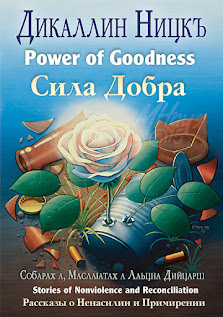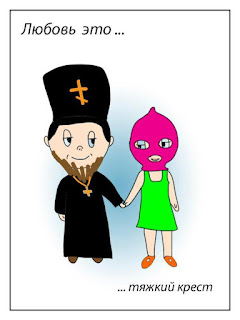 |
| From and to my students in Elektrostal, Russia -- at the Kazantsev School and New Humanities Institute. |
There is nothing like a full-on war to strip sentimentality out of the concept of loving our enemies.
| ||
|
I was at a gathering the other day. Someone said, "I just don't know how to pray right now." I was grateful for that honesty.
I'm a follower of the Prince of Peace, and he makes it clear what he requires:
You have heard that it was said, ‘Love your neighbor’ and ‘Hate your enemy.’ But I tell you, love your enemies and pray for those who persecute you.... [Context.]
What do we do with this love when the bombs and missiles fly, when cities are held hostage, and when we have friends located on both sides of this entirely unnecessary conflict?
Just to open the discussion, let me list a few ideas. They are so incomplete, I know, but maybe you can add your own thoughts.
- Even if someone regards you and me as an enemy, we are not required to reciprocate. In his book War is a Force That Gives Us Meaning, Chris Hedges described the addictive and transformative power of war to change even globally-minded people into zealous partisans. We do whatever it takes -- pray, correspond, gather, telephone, cherish precious memories -- to resist that power, to accept others' help in resisting, and to help them resist. I will not contribute to the isolation of the Russian people, despite the wave of anti-Russian sentiment all around me; to the limits of my ability, I will be as available for my friends and former colleagues as I ever was. Many of them are heartbroken at this moment.
- Loving across the lines of violent division takes practice. C.S. Lewis, in Mere Christianity, admitted the difficulty of love and forgiveness, but noted that it was non-negotiable. ("...I am telling you what Christianity is. I did not invent it.") But "...perhaps we had better start with something easier than the Gestapo." Recall the lessons you and I have already had in praying for those in our own lives who seem to want to make life more difficult.
- Those whom we're tempted to hate are just as trapped in bondage, in systems of generational violence, as some of us also find ourselves. For many centuries, Russians have had a very dysfunctional relationship between those with gross wealth and power, and everyone else; how has this limited the choices among those who now hold power, and among those whose apparent only defense is passivity? Are there any dynamics in our own society that give us opportunities to practice the discernment of forces that would hold us in bondage? The currents of democracy and authoritarianism have ebbed and flowed even here in the "land of the free" -- and the USA is far from out of danger. Can we find words and concepts that would subvert the usual definitions of "enemy" in favor of deeper and more systemic insights? Can we tell stories instead of spinning theories? Can we learn to tell awkward truths with love and humility and reciprocity?
- Christians! This is not our first rodeo! Right now we're dealing with a particular crisis, but how many generations have Israelis and Palestinians (for example) been seemingly trapped in an evil and persistent bondage that is less dramatic than Kyiv and Mariupol at the moment, but no less crushing? What have we learned about love and prayer from these and similar costly lessons? And, when the war in Ukraine concludes, will we be ready to apply those new lessons to Palestine and elsewhere?
- When I run out of words to pray, and my emotions threaten to overwhelm me -- or, as happens just as often, I completely run out of energy to pay any attention at all -- I go back to my six-syllable prayers. Lord Jesus, have mercy. I want to dwell in you. Really, I have no cleverness that I can fall back on, no easy explanation for evil, no other place to retreat.
Friends World Committee for Consultation, Europe and Middle East Section, has arranged several online Quaker meetings for worship with a focus on Ukraine and peace, and plans additional meetings.
Mark Elliott on the religious dimension of the invasion of Ukraine. (Mark is the editor emeritus of East-West Church and Ministry Report, which I read for many years.)
The Quaker Religious Education Collaborative addresses protecting our children.
Life in an Old Growth Forest ... retirement or engagement?
Charlie Musselwhite and Eric Bibb, "Homeless Child" and "Six O'Clock Blues."
"The fire's getting closer, the devil's turning up the heat...."
BUT: "...Think about what we've come to, as a nation with a cruel past. When we face our history, we'll all be free at last."


No comments:
Post a Comment